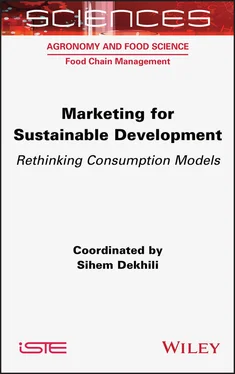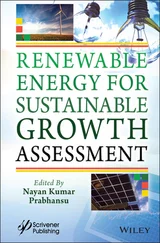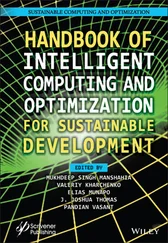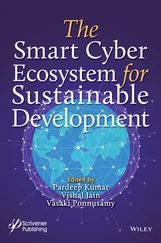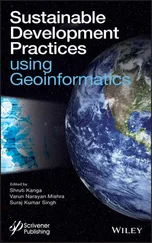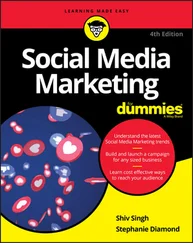1 ...6 7 8 10 11 12 ...17 As a result, the domination approach, questioned at the individual and group levels by consumers, is challenged by a collaborative and socially responsible approach, where companies and citizens cooperate on a shared project, founded around basic values that must be respected. This project, balanced between human, environmental and economic components, would be the basis for the development of suitable provisions and measures to be implemented to the benefit of the different stakeholders. This possibility for cooperation between companies and consumers could be a credible alternative to a conventional marketing approach that is not considered socially responsible. As well as its inclination to create a new, fair and balanced relationship between the stakeholders, this approach would constitute a means for the potential reconciliation of companies with the protest movements that target them, e.g. the anti-consumers, protesting citizens, counter-cultural communities 5and communities of socially engaged individuals, with a view to encouraging business to take on a new idea of the world.
More broadly, for the online communities studied, this concerns the reconsideration of the field of action and the use of marketing, which should not be limited to sales but should take into account the impact of its choices on health, resources and the environment. This means a shift in the center of gravity of power, from the sole interest of the company to an integration of the collective interest. To that end, research highlights that brands will regain the trust of consumers when they show their ability to assume civic responsibilities (Dubuisson-Quellier 2009) alongside their role as an economic actor. Consumers and civil society will make their presence felt as stakeholders in considerations, positions and economic and social choices, as basic elements of an alternative and inclusive vision of the market.
1.4. Pragmatic and operational categories of market contestation
1.4.1. Towards a sustainable reconsideration of product offerings
Stemming from the values defended by the members of these communities involved in ecologically responsible consumption, the offering of products and services is supposed to respond to a three-fold demand: that they are useful, sustainable and recyclable. According to the members of these communities, this is not only about promoting a “really useful” product, but also one with sustainable and recyclable properties, with a view to limiting the depletion of natural resources. The “sustainable” nature stands out as one of the features that the members of the three communities expect most, as evidenced by, among other things, the tendency to avoid impulsive purchases of short-lived and useless “gadgets”.
Table 1.2. Views of the development of marketing practices through the lens of responsible consumption
| Product offerings and practices concerned |
Expectations in terms of the suppression of superfluous or unsustainable products |
Expectations in terms of the development of responsible and sustainable products |
Inherent or mobilized values |
| Cosmetic, hygiene and self-care products |
Industrial and over-packaged products |
Natural products based around natural components and with natural packaging |
Protection of health and the environment |
| Food products |
Products transformed by and produced by traditional agriculture |
Products from bio-agriculture and/or small farmers and green cooperatives, with as little modification as possible |
Protection of health and the environment, solidarity |
| Pharmaceutical products |
Chemical products with sometimes serious side effects |
Natural products with proven benefits for people and the environment and without notable side effects |
Protection of health and the environment |
| Motor vehicles and technological products |
Polluting products subject to planned obsolescence |
Environmentally-friendly substitute products: bikes, electric cars, public transport with less of an impact on the environment |
Protection of the environment |
| Distribution channels |
Widespread distribution and traditional networks |
Networks for swaps, trades and giveaways |
Solidarity, de commodification of trade |
| Circular economy (second-hand shops and purchases, recycling) |
Reduction of waste |
| Consumption-related events |
Short “small producer” networks and/or specialized structures |
Protection of health and the environment, reduction of waste |
| Sales periods, periods with promotions and special events (encouraging over-consumption) |
Days/weeks without purchases Encouragement of minimalist and activist purchases “useful” to people and the environment |
(Re)developing social connections, the primal importance of the usefulness of the object, reduction of waste |
| Communication |
Aggressive and intrusive advertising, advocating the accumulation of goods, possessions and appearances |
Social advertising promoting the values of responsibility, protection of the environment and respect for human health |
Promoting individual and collective well-being, protection of health and the environment |
In the same vein, these communities seem to be particularly attached to combating planned obsolescence, which is both a tool facilitating the continuation of the traditional market system (limiting the lifespan of products in order to encourage consumption) and a factor in the deterioration of the environment (promoting the waste of resources and the creation of refuse). Beyond the fight against the waste created by planned obsolescence, the community members also mobilize against the producer practices tainted by “irresponsibility”, “manipulation” and “cynicism”. In this regard, they propose strategies to circumvent planned obsolescence through mechanisms to repair used or malfunctioning objects (clothes, household items, cars, furniture, etc.), including by sharing sites advocating personal repair: “Here’s a link that you should like! The dream for combating the planned obsolescence of products: www.commentreparer.com. Don’t throw away, repair!” (Change through consumption).
Lastly, in contrast to the rejection of unsustainable products and services triggered by the traditional market, the members of the three communities opt for offerings that are compatible with the values of responsible consumption. This attitude paves the way for a large range of new behaviors suited to well-reasoned consumption. It is precisely at this level of analysis that researchers and decision-makers must add their will to act, adapt and even to reform, as advised in Table 1.2. This shows two views of the development of product offers at the dawn of sustainable consumption by considering, on the one hand, the expectations of consumers involved in suppressing non-compliant products (those harmful to people and their environment) and, on the other hand, the expectations in terms of developing new products characterized by usefulness, sustainability and responsibility.
1.4.2. Towards a necessary reconfiguration of supply and distribution channels
In the same vein as the obligation to rethink product offers, the members of the communities studied take into account their search for alternative supply structures, which are deployed alongside traditional distribution networks, which are characterized by unethical practices, namely, an appropriation of value and an unequal distribution of profits. This naturally leads to a shift towards substitute supply networks that respond to the imperatives of responsibility and sustainability, such as short, circular or cooperative networks, among others. These alternative structures rely on different operations and aims than those dependent on the convention model, insofar as they respond to expectations for healthy and authentic products, created in decent working conditions, for a fair price and with less of an environmental footprint.
Читать дальше
